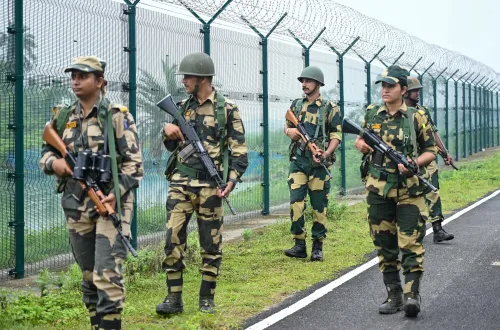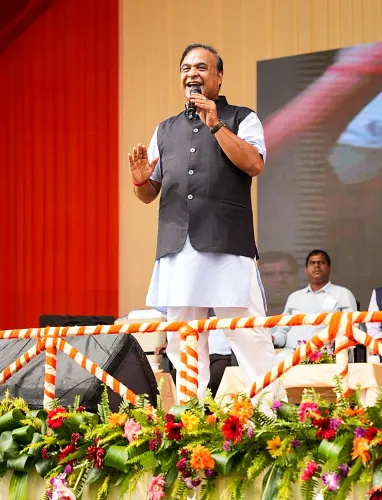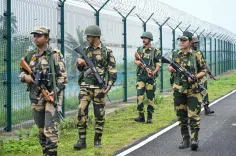AFSPA Revoked in Dibrugarh District of Assam: CM Sarma

Synopsis
Key Takeaways
- AFSPA lifted from Dibrugarh
- Act still in effect in Tinsukia, Sibsagar, and Charaideo
- Plans to upgrade Dibrugarh town as a second capital
- Focus on ongoing peace following insurgent activity
- Encouraging growth and stability in the region
Guwahati, March 27 (NationPress) The Chief Minister of Assam, Himanta Biswa Sarma, announced on Thursday that the Union Home Ministry has officially revoked the Armed Forces Special Powers Act (AFSPA) from the Dibrugarh district.
The AFSPA provides the armed forces with substantial powers in areas designated as "disturbed," enabling them to perform searches, make arrests, and utilize force when deemed necessary to maintain public order.
Even though it has been lifted from Dibrugarh, the Act continues to be enforced in the neighboring districts of Tinsukia, Sibsagar, and Charaideo.
During a press conference in Guwahati, CM Sarma emphasized the ongoing reduction of AFSPA's jurisdiction within Assam.
"Previously, the entire state was under the AFSPA. The central government has progressively narrowed down the regions where the Act is applicable. Recently, the Union Home Ministry has eliminated the 'disturbed area' status for Dibrugarh, leaving only three districts under the AFSPA. We are committed to further reducing this in the near future," the Chief Minister stated.
The state government has also revealed plans to enhance Dibrugarh town, a key center for Assam's tea industry, establishing it as the state's second capital alongside Dispur.
CM Sarma noted that the abolition of the AFSPA is anticipated to positively influence the district's development.
Initially implemented across Assam in 1990 during a surge of insurgent activity led by the United Liberation Front of Asom (ULFA), the AFSPA has been renewed every six months, with regular assessments leading to the gradual removal of certain areas based on the current security climate.
Earlier, CM Sarma mentioned that peace and stability have become a consistent feature in the state over recent years, as numerous militant factions have integrated into the mainstream, abandoning violence.
Since 2021, the Assam government and the Centre have entered into four peace agreements with various insurgent groups, including Karbi insurgents, Adivasi organizations, the Dimasa militant group, and ULFA.
Moreover, the peace deal signed in 2020 with the Bodo militant organization, the National Democratic Front of Bodoland, resulted in the surrender of approximately 9,583 militants.
CM Sarma remarked, "Additionally, the areas under AFSPA have dwindled in Assam, with only four districts currently governed by the Act."
He concluded, "In the past three years, thanks to the persistent efforts of our government and the proactive support from the Union government, peace and stability have become enduring characteristics of our state."
"Almost all prominent militant groups have surrendered and integrated into the mainstream, aiming to create a Viksit Assam," the Chief Minister added.










